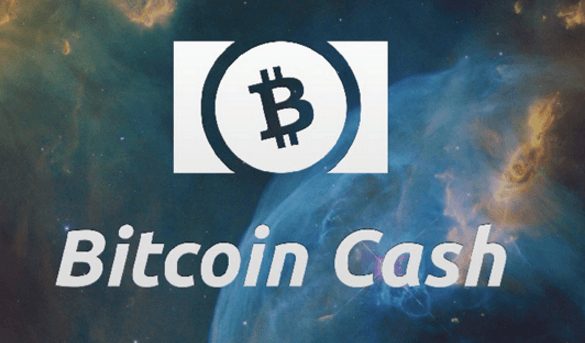
Over the past five years, the bitcoin community has changed beyond recognition. Before its wider adoption thanks to digital infrastructure, cryptocurrency was a rather exclusive club. From small to large, the bitcoin community is reaching critical mass with retail investors and has now grabbed the attention of institutions as well. While banks will never admit that they feel threatened by the revolutionary decentralized coin, they surely want to satisfy the greater demand for it.
Many will say 2017 was the banner year of cryptocurrencies of all kinds, not just bitcoin. Next year, the cryptocurrency market will be seeing even greater changes, as institutional investors create their own derivative markets and provide new liquidity. Banks, commodities exchanges, and other global financial entities are readying themselves to enter the market. While they may be starting with bitcoin due to its value as the highest per-coin, others such as bitcoin cash are more than likely to be adopted as well.
Expanding Institutional Appeal
By first becoming involved in bitcoin, exchanges that sprouted up made the digital token exchangeable with fiat money, a notable step towards changing perceptions of its usefulness and fungibility. Traders could then pair bitcoin the US dollar, Euro, or Pound. This opened the door, and gave bitcoin a new architecture on which it could expand its influence and reach. Not only was it a currency, but it also became an asset with a market capitalization and many willing participants. At a certain point, it also became impossible for larger market participants to ignore its momentum despite the prevailing view that its application was still limited in nature.
One of the major groups that was notably absent from the discussion of cryptocurrencies before 2017 was the largest component of the global investing community: institutional investors. Apart from designing their own blockchain-based solution called XRP, the participation of banks, financial firms, fund managers, mutual funds, and wealth management outlets was severely limited due to considerations ranging from liquidity, transactability, and risk management. Furthermore, because of their notable footprint, many were dissuaded simply because their scale of investing which typically depends on allocations of tens of millions of dollars.

Banks using Ripple
However, with the blistering returns, institutions could no longer look on without feeling envy, and now a growing number of them are trying to claim a piece of the market for themselves. New derivative products are being launched to capitalize on this growing embrace from the institutional level, but while many of these new assets being introduced are focused on bitcoin, bitcoin cash is also likely to see a greater level of institutional participation thanks to the numerous advantages it exhibits over its more established peer. As the traditional investment infrastructure takes cues from its younger competition, it stands to reason that other major cryptocurrencies will find support as well.
Bitcoin Cash’s Slow Roll
Although bitcoin cash has not received the same level of critical acclaim as its precursor, institutions may very well grasp the increased value in its application that makes it a sounder destination for investment. Most prominently, bitcoin cash addresses many of the hang ups surrounding institutional participation. When exchanging bitcoin, transactions can take as long as one hour in some cases, which in as volatile a market as bitcoin, could mean significant changes in prices between the time of the transaction execution and transaction closing. Imagine for an institutional transaction of $10,000,000 experiencing a 1-2% swing in prices or even more in the time it takes to open and close a position. Added up over time, this amounts to a significant amount of money. For institutional investors, this degree of volatility and lag time may prove more of a limitation than an incentive.
By comparison, bitcoin cash has brought the time to process blocks to less than 10 minutes, with the EDA functionality also helping maintain shorter block processing times by incentivizing miners’ participation. Apart from the shorter processing times is the ability to process more transactions on a single block, helping bitcoin cash transition from more than just an asset to fulfilling the role of actual currency. Bitcoin is increasingly perceived as an asset instead of a currency, owing in many ways to its investors propensity to hold instead of transacting with the cryptocurrency. But in many ways, this hurdle is more of a limitation of bitcoins processing power.
At present, bitcoin can handle approximately 7 transactions compared to Visa’s proven ability to handle 2000 transactions per second. By comparison, if mining power continues to climb, bitcoin cash will be able to handle significantly more transactions than bitcoin considering its scalability and bigger block architecture, rapidly putting bitcoin cash on more equal footing with more established payment processing methods and increasing its applicability, which may be accompanied by a rise in market capitalization and price over time.
The Whole Pie
Institutional investors would be foolish to attach their funds to one kind of cryptocurrency and ignore the rest of the market. Cryptocurrency’s total market capitalization is growing exponentially, but bitcoin’s share is gradually waning due to other popularity of other tokens such as litecoin, ethereum, and quite soon, bitcoin cash. Earlier this month, the cryptocurrency industry’s total market cap reached over $200 billion, whereas bitcoin surpassed the $125 billion mark. Some might see this as positive for bitcoin, others see it as if the coin has more to lose relative to upstarts, and little to gain.
As for longevity, larger investors are more likely to adopt coins with greater applications, and not just demand. They may examine bitcoin cash’s potential as a better payment service, which may contribute to price increases will raising the likelihood of expanded institutional participation. It is also in institutional players’ interests to participate in Exchange Traded Funds (ETFs) and other kinds of basket-like investing instruments like CFDs, which would signal their perception of different coins as different contacts. This could immediately legitimize the entire cryptocurrency industry, and not just bitcoin.

